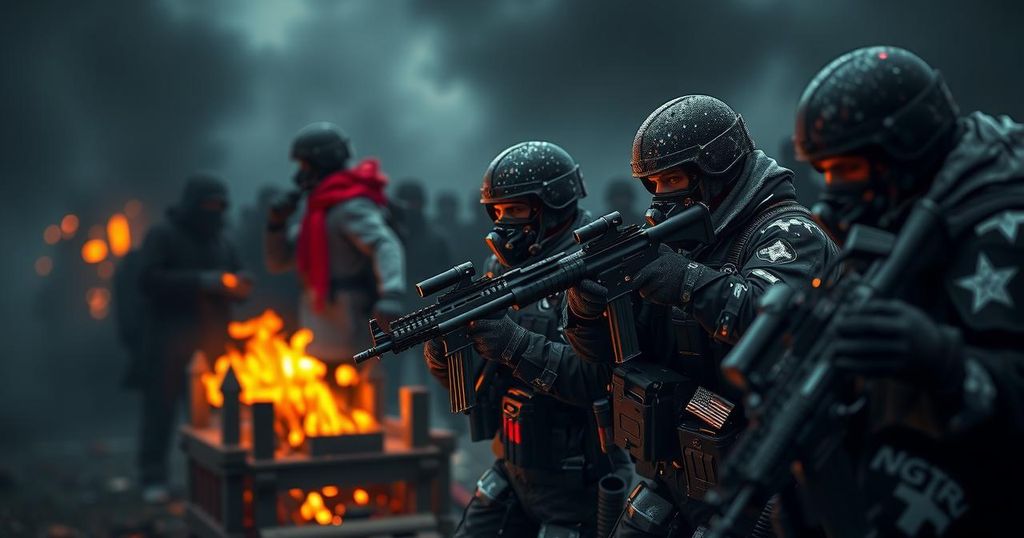Future Prospects for the Wagner Group After Failed Rebellion in Russia

The Wagner Group faced a failed rebellion against the Russian military, leading to uncertainty about its future. With options to join the Russian army, follow their leader Yevgeny Prigozhin to Belarus, or return home, many fighters are in a critical position. Experts suggest that Wagner will likely persist globally, particularly in Africa, regardless of Prigozhin’s fate, as it can reorganize under new leadership.
The Wagner Group’s recent failed armed rebellion against the Russian military, which saw them briefly march towards Moscow, has left its future uncertain. Following a reported agreement enabling their leader, Yevgeny Prigozhin, to seek exile in Belarus, many of Wagner’s fighters now face tough choices. Russian President Vladimir Putin has indicated that they could join the Russian army, accompany Prigozhin, or return home. Reports suggest that approximately 1,000 Wagner fighters have already opted for Belarus, although it remains unclear how many are still in Russia or have formed separate factions.
Several experts believe that the group’s capacity to sustain operations outside of Russia will likely persist, given its established presence in various global regions, notably Africa and the Middle East. Analysts assert that many former Wagner members may return to Africa, where they have been operational for some time, possibly prompting a rebranding of the group to conceal its connections to the failed uprising. In addition, while some fighters may refuse to align with the Russian military due to financial concerns – noting that private paramilitary groups often pay significantly more – the group’s future leadership dynamics are further complicated by the potential for the development of new paramilitary organizations.
As for Prigozhin, speculation around his fate continues. It appears that President Lukashenko of Belarus successfully advised against direct retaliation against him from Putin, leaving Prigozhin in a position where he could potentially oversee Wagner’s operations abroad. Despite his possible withdrawal, analysts contend that the organization can survive without him given its diverse paramilitary landscape in Russia. Therefore, while the Wagner Group faces substantial challenges ahead, its dissolution seems unlikely, as it can adapt and persist under varying circumstances and leadership.
The Wagner Group, originally formed as a paramilitary organization, has been involved in various conflicts globally, particularly in regions like Africa and the Middle East. Their recent armed rebellion in Russia highlighted significant tensions between mercenary groups and the Russian military powers. Following the rebellion’s failure, serious considerations arose regarding the group’s adaptability and future operational capacity, raising questions about the loyalty and motivations of its fighters amidst evolving dynamics in Russian state power.
In summary, while the Wagner Group has faced a critical juncture following its brief insurrection against the Russian military, it continues to hold potential for operational viability. Many fighters have chosen important paths, with some opting for Belarus, while others may shift back towards Africa or delineate entirely new paramilitary organizations within Russia. The ultimate question about Prigozhin’s leadership remains, yet the organization itself possesses the resilience to adapt and continue its operations despite upheaval and uncertainty.
Original Source: telegrafi.com








